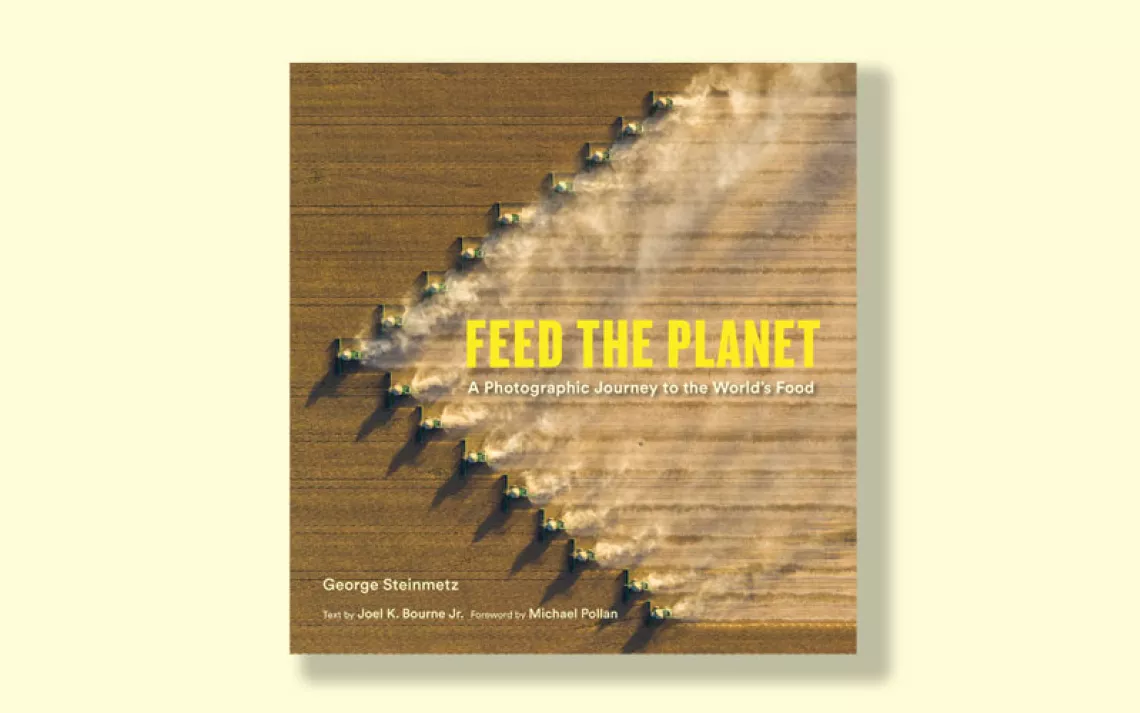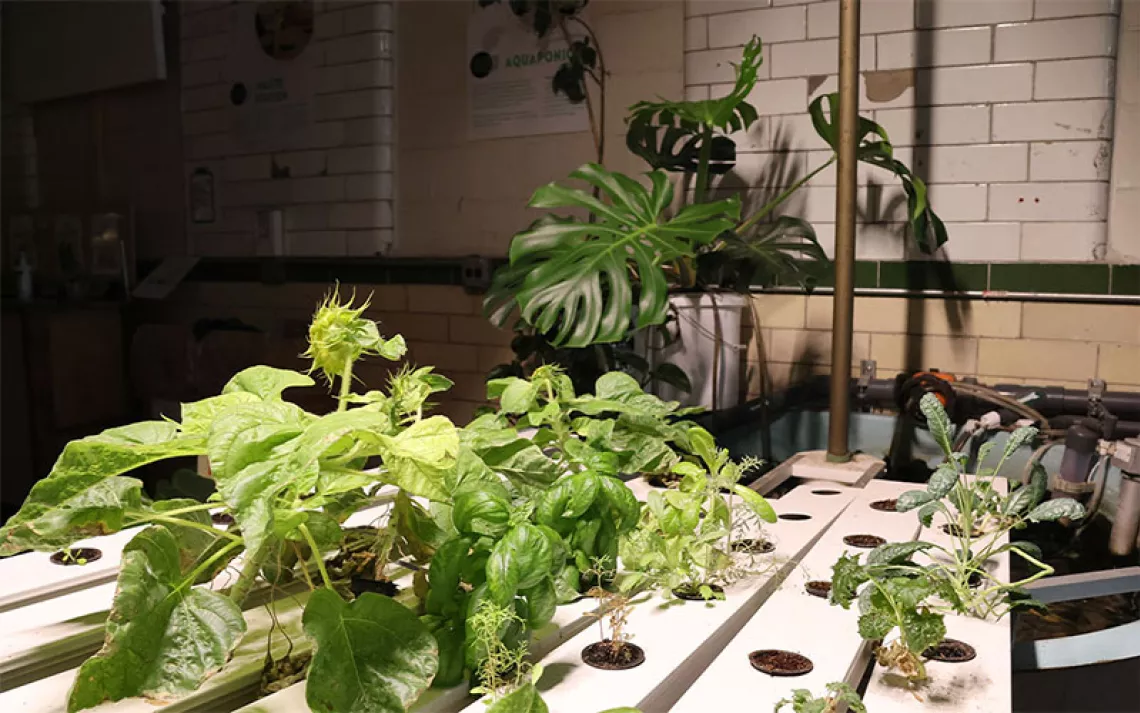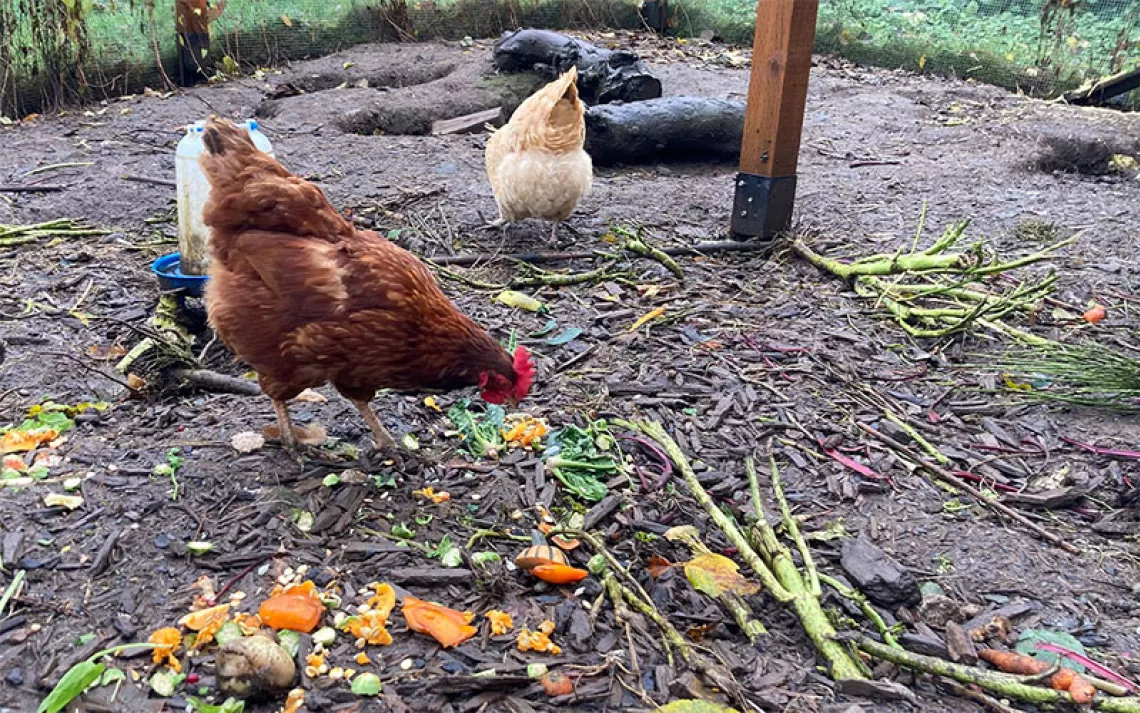Some Food for Thought on “Moral Meat Eating”
What will it take to change our entrenched dietary patterns?

Photo by enviromantic/iStock
When I was growing up, I couldn’t get enough of pork dumplings, McRib sandwiches, and inappropriate amounts of cheese sauce. If you’re like the vast majority of people in the United States, you also consumed a large amount of animal products at one time in your life, and most still do. We Americans keep eating animal products at higher rates than almost every other country in the world, despite plenty of information about the damaging health consequences, outsized environmental impacts, and widespread cruelty of the modern meat, dairy, and egg industries. The Sierra Club has a clear policy to encourage “personal dietary choices that minimize or eliminate meat and animal products,” and as a member of the Sierra Club Board of Directors, I’m often left wondering, why do we eat so many animal products, and how can we reduce our consumption of them?
Let’s start with “why.” For a lot of us, meat tastes good. According to Mark Rosegrant, an economist with the International Food Policy Research Institute, people “eat more meat when they have the economic wherewithal to eat more meat.” The United States has been blessed with a strong economy, so it stands to reason that we eat a lot of meat. But why does our consumption outpace countries that also have strong economies? Government subsidies and loose environmental and animal protection rules in the United States contribute to artificially lower meat, dairy, and egg prices and therefore, higher consumer demand. Some obvious ways to lower the consumption of animal products include reducing the subsidies that make them so cheap and tightening environmental and animal cruelty standards on factory farms. In economic terms, if we stop allowing the animal agriculture industry to “externalize” their costs onto the public, the market will naturally move toward less consumption of their products.

Sign up to receive Sierra News & Views
Get articles like this one sent directly to your inbox weekly.
With this action you affirm you want to receive Sierra Club communications and may vote on policy designated by the Sierra Club Board.
Another, perhaps less obvious reason why so many people consume animal products is because our parents and school administrators fed them to us. When you start something before you can even walk or talk, and do that thing over and over again nearly every day, it’s hard to stop. Environmentalists have spent a lot of time educating the public about the impact of animal products, but many social scientists would argue that simply educating people is a poor way to change behavior. So what might human-behavior experts suggest to help people make lasting and fairly dramatic shifts in something as deeply entrenched as our dietary patterns?
The concept of core values seems like a good place to start. According to YourDictionary.com, core values “are the guiding principles that dictate behavior and action. They can help people to know right from wrong, and they create an unwavering and unchanging guide.” It can be transformational for people to get clarity on what their core values are and then do the work needed to live into those values. For me, I filter my actions through one in particular: to live a life guided by love. This frame led me to serve on the Sierra Club Board of Directors. It’s my beacon as I raise my son, it helps me prioritize my own self-care, and for the past 26 years, it has guided me to a plant-based diet despite my taste for meat and cheese.
If more people viewed their diet through the lens of their own core values, I expect that many people would cut down on their consumption of animal products or eliminate them entirely. Many vegans and vegetarians cite health concerns, environmental impacts, and animal cruelty as reasons for their dietary choices, but I know that folks with plant-based diets often have deeper underlying reasons—perhaps it’s because they want to be alive and vibrant for their grandchildren, be good stewards for future generations, or live a life of peace and compassion. When people can live into values like those, we’ll all be better off.
Studies also suggest that consuming fewer animal products would be a whole lot easier for people if it’s done with a supportive community, or even just one friend or family member. Researchers found that people influence one another in profound ways: Those working to improve their heart health had much better results when they did it with friends or family members compared with others who did it alone. Similarly, those with obese friends are more likely to be obese themselves. Learn more on how behaviors are “contagious” here and here. If we want to cut down on animal products, finding a supportive group or recruiting a buddy or two could have a big impact.
Finally, while many people think that we develop beliefs first and then act on those beliefs, folks who study human behavior have found that the opposite is often true. First we act, and then we develop belief systems that are consistent with our actions. It turns out that diet is a good example of this. When a parent feeds a child meat, milk, or eggs before that child is old enough to question it, the child is clearly engaging in behaviors before developing beliefs around those behaviors. If that child grows up and is asked about her dietary values, she’ll likely come up with a story that is consistent with how she eats. In his book Change of Heart: What Psychology Can Teach Us About Spreading Social Change, Nick Cooney explains it this way:
A nutrition nonprofit I used to work for put this idea into action in the following way: Instead of just trying to educate students about nutrition through classroom presentations, they had the students cook and prepare healthy meals during lunchtime, after school, and in some presentations. The students picked up bits of info while preparing the food, but most importantly they switched their behavior. Now it was easier for them to see themselves as “the sort of person who cares about eating healthy,” which helped ingrain that message in them in a way that classroom presentations never would have done.
Rather than show frightening graphs about the links between climate change and animal agriculture, perhaps environmentalists should simply host regular plant-based potlucks. Theoretically, people’s participation in those would reinforce a more ecofriendly dietary mindset, which would then reinforce that behavior even more. Maybe try out some mouth-watering vegan potluck recipes.
As I conclude, I should mention that I originally started writing this article in response to an essay written by Jason Mark, Sierra magazine’s editor in chief, entitled, “Toward a Moral Case for Meat Eating.” In it, he argues that eating meat affirms our animal nature, which in turn draws us closer to the earth, which leads us to eat less meat (or at least eat more intentionally). While I find that logic flawed and was prepared to make point-by-point counter-arguments to much of what he wrote, that’s not the story that came out when I sat down to type. I don’t know why he felt compelled to find a moral argument for meat eating, but rather than debate him, I thought it would make more sense to offer a different perspective on the subject. Every day, I work to live a life guided by love, and this is what love guided me to spend my time doing. I hope you, dear reader, can figure out what your core values are, and then go out and live into them.
Postscript: Nearly all of the online comments to Mr. Mark’s article are highly critical. Like many of you, I had a very charged, negative reaction to his essay. After speaking with Mr. Mark, he stands by what he wrote and believes it offers a pretty clear encouragement of a “reducetarian” diet. I am concerned that people will gloss over the nuance of his essay and simply use it to justify more meat eating. I wrote this response in part because, as a board member, I am committed to ensure that the Sierra Club stays true to its mission to protect the planet and work in line with our policy to encourage “personal dietary choices that minimize or eliminate animal products.” Our water, air, land, climate, and the lives of literally billions of animals are at stake. If you want to add to the conversation, or help us figure out how to adequately address animal agriculture given competing priorities, please add a comment, apply for a job with us, or get involved as a volunteer on the local or national level. Building a more compassionate, equitable, and sustainable future is no small task. We need all the help we can get.
 The Magazine of The Sierra Club
The Magazine of The Sierra Club



